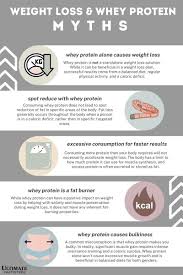Discover the truth about protein! Uncover myths and explore scientific facts about protein’s role in your diet. Learn how to optimize your nutrition for better health.
Protein has long been at the center of dietary debates. Is it the ultimate macronutrient, or can too much of it harm you? Are plant-based proteins inferior to animal proteins? These questions fuel confusion, leading to widespread myths and misinformation. In this article, we’ll separate myths from facts, dive into the science, and empower you to make informed dietary choices.
What Is Protein and Why Is It Important?
What Are Proteins?
Proteins are complex molecules composed of amino acids, the building blocks of life. They play a critical role in building and repairing tissues, producing enzymes and hormones, and supporting immune function.
Why Do We Need Protein?
Protein is essential for:
- Muscle Repair and Growth: Especially after exercise or injury.
- Enzyme Production: Catalyzing biochemical reactions in the body.
- Hormonal Balance: Supporting functions like metabolism and growth.
- Immune Support: Aiding in antibody production.
Common Myths About Protein
Myth 1: You Can’t Get Enough Protein on a Plant-Based Diet
The Myth:
Plant-based diets lack sufficient protein and essential amino acids.
The Fact:
Many plant-based foods are rich in protein, such as lentils, chickpeas, tofu, and quinoa. While some plant proteins are not “complete”—meaning they don’t contain all nine essential amino acids—combining different sources (e.g., beans and rice) provides a full amino acid profile.
Myth 2: High-Protein Diets Are Bad for Your Kidneys
The Myth:
Eating too much protein strains your kidneys and causes damage.
The Fact:
In healthy individuals, high-protein diets have not been shown to harm kidney function. However, those with preexisting kidney conditions should consult a doctor before increasing protein intake.
Myth 3: All Proteins Are Created Equal
The Myth:
It doesn’t matter whether your protein comes from plants, animals, or supplements.
The Fact:
Animal proteins (e.g., eggs, meat, dairy) are complete proteins, while some plant proteins may lack certain essential amino acids. That said, plant proteins often come with added benefits, such as fiber and antioxidants, which animal proteins lack.
Myth 4: More Protein Means More Muscle
The Myth:
The more protein you consume, the more muscle you build.
The Fact:
While protein is essential for muscle repair and growth, excessive intake won’t magically increase muscle mass. Strength training and overall caloric intake also play key roles.
Scientific Facts About Protein
How Much Protein Do You Really Need?
The Recommended Dietary Allowance (RDA) for protein is 0.8 grams per kilogram of body weight for the average adult. Athletes or individuals with higher activity levels may require up to 1.2–2.0 grams per kilogram.
Protein Timing and Distribution
Research suggests that spreading protein intake evenly throughout the day maximizes muscle protein synthesis. For example:
- Breakfast: 20–25g
- Lunch: 20–25g
- Dinner: 20–25g
Animal vs. Plant Protein: The Debate
- Animal Proteins: High in essential amino acids but can come with saturated fats.
- Plant Proteins: Lower in certain amino acids but offer additional health benefits like lower cholesterol and reduced risk of heart disease.
Practical Tips for Optimizing Protein Intake
Balance is Key
Combine animal and plant proteins for a balanced amino acid profile and additional nutrients. Examples:
- Grilled chicken with a side of quinoa.
- Greek yogurt topped with nuts and seeds.
Incorporate Protein-Rich Snacks
Examples of protein-packed snacks include:
- Hard-boiled eggs.
- Edamame.
- Protein smoothies with whey or pea protein powder.
Beware of Over-Processed Protein Products
Not all protein bars or powders are created equal. Look for options with minimal added sugars and artificial ingredients.
FAQs
1. Can I eat too much protein?
While excess protein is generally safe for healthy individuals, very high amounts over extended periods can lead to digestive issues or nutrient imbalances. Moderation is key.
2. What is the best source of protein?
The best source depends on your dietary preferences and health goals. Animal proteins are complete, while plant proteins offer added health benefits. Combining both can be optimal.
3. Do I need protein supplements?
Most people can meet their protein needs through food. Supplements can be helpful for athletes or individuals with limited access to whole foods.
4. Is protein necessary for weight loss?
Yes, protein helps maintain muscle mass and promotes satiety, making it a valuable component of a weight-loss diet.
The debate around protein often stems from misinformation and myths. By understanding the science, you can make smarter dietary choices tailored to your lifestyle and health goals. Whether you prefer plant-based sources, animal proteins, or a combination of both, balance and variety are the keys to optimal nutrition.
Protein isn’t just a macronutrient—it’s a cornerstone of a healthy diet. Use this knowledge to separate myth from fact and take control of your nutrition today!